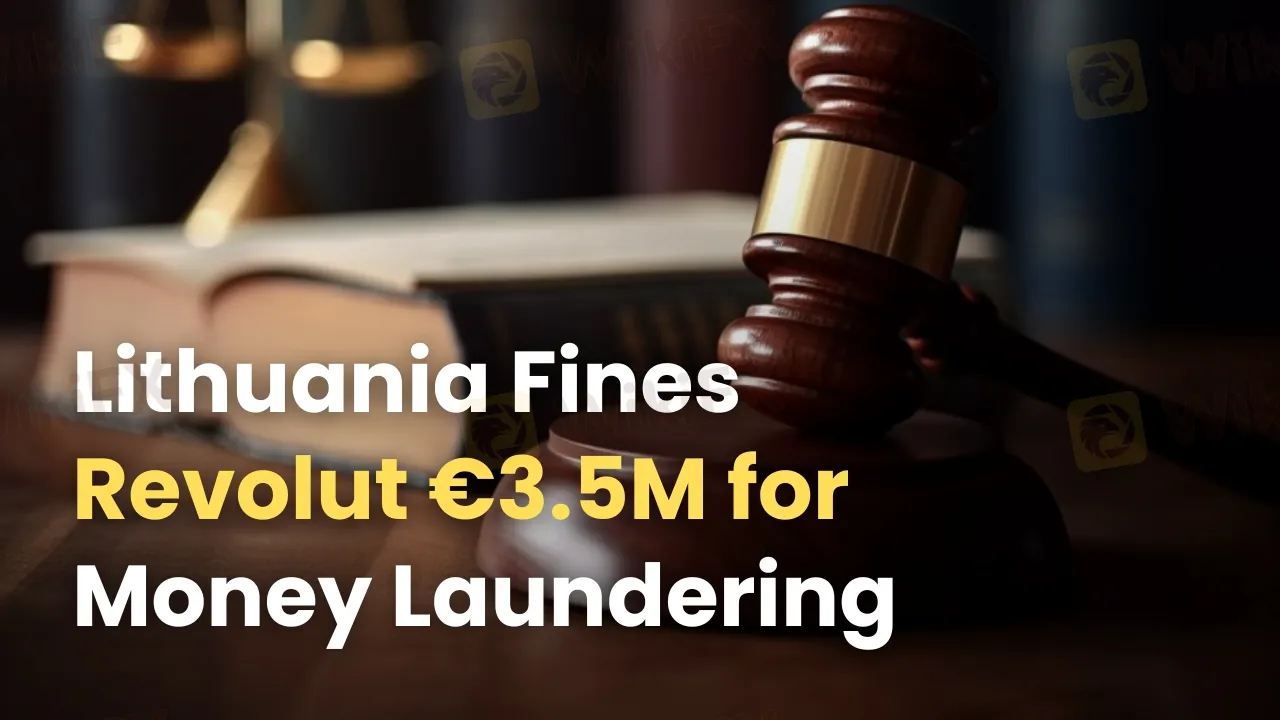简体中文
繁體中文
English
Pусский
日本語
ภาษาไทย
Tiếng Việt
Bahasa Indonesia
Español
हिन्दी
Filippiiniläinen
Français
Deutsch
Português
Türkçe
한국어
العربية
Lithuania Fines Revolut €3.5M for Money Laundering Failures
abstrak:Lithuania‘s central bank fines Revolut €3.5M for money laundering prevention lapses. Learn about the investigation, Revolut’s response, and its impact on fintech.

Lithuanias central bank has handed down a staggering €3.5 million ($3.83 million) fine to Revolut, the British fintech powerhouse, for weaknesses in its efforts to prevent money laundering. This penalty, the biggest ever from the bank, came after a standard review exposed serious flaws in how Revolut tracked its business dealings and activities.
The central bank pointed out that these missteps left Revolut unable to spot questionable transactions effectively. In response, Revolut stressed that the probe didnt uncover any real “money laundering” cases. Rather, it highlighted spots where their current safeguards could use some work. The firm insisted it takes regulatory rules seriously and has teamed up with Lithuanian officials to fix the problems.

The size of the fine mirrors both the weight of the slip-ups and Revolut‘s hefty footprint in the European Economic Area (EEA). Revolut Holdings Europe, which handles the company’s regulated operations in the region, raked in a record £438 million ($559.5 million) in pretax profit in 2023. With a valuation hitting $45 billion in August, Revolut stands tall as a major force in the worldwide fintech scene.
On another front, Revolut has joined forces with Visa to push back against the UK Payment Systems Regulator‘s (PSR) plan to cap interchange fees. The duo argues that such limits would choke competition and slow down fresh ideas in the fintech world. They warn that the PSR’s move might force banks to trim perks like rewards or tack on new charges, hitting customers in the wallet. Visa added that slashing interchange fee income could stunt growth and weaken the markets competitive edge.
This fine puts Revolut at a crossroads, juggling regulatory hurdles while holding its ground as a top fintech contender. How it handles these challenges could steer its path forward and define its standing in the tightly controlled financial landscape.

Disclaimer:
Ang mga pananaw sa artikulong ito ay kumakatawan lamang sa mga personal na pananaw ng may-akda at hindi bumubuo ng payo sa pamumuhunan para sa platform na ito. Ang platform na ito ay hindi ginagarantiyahan ang kawastuhan, pagkakumpleto at pagiging maagap na impormasyon ng artikulo, o mananagot din para sa anumang pagkawala na sanhi ng paggamit o pag-asa ng impormasyon ng artikulo.
Broker ng WikiFX
Exchange Rate


